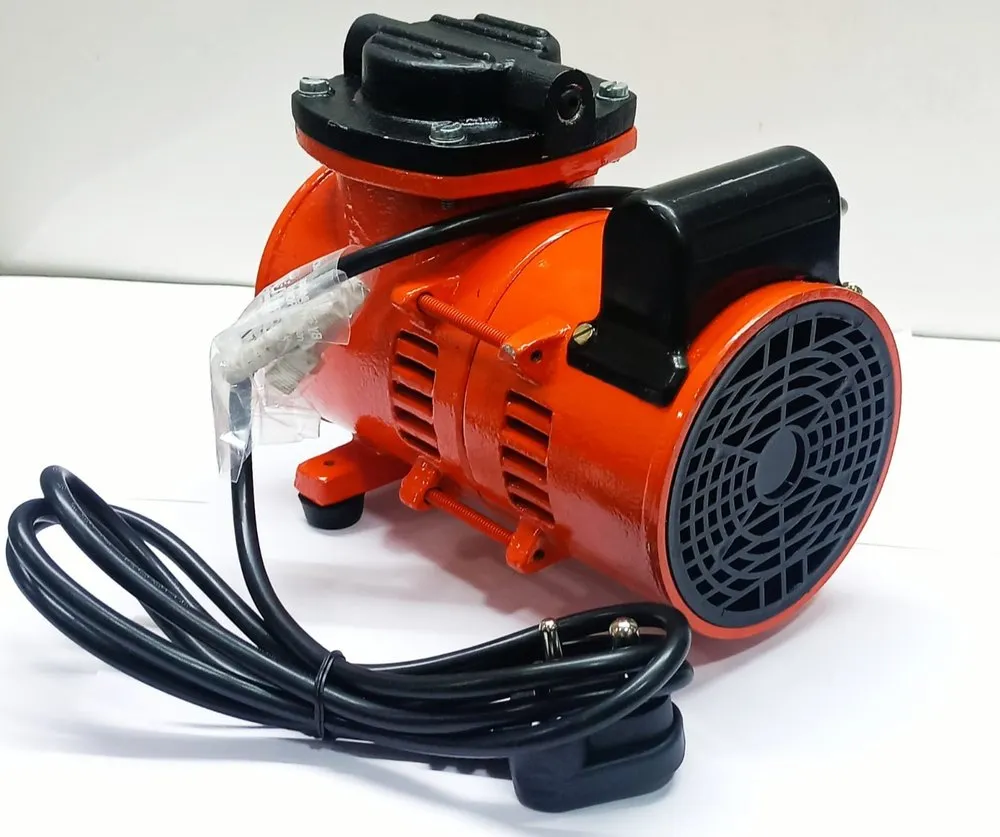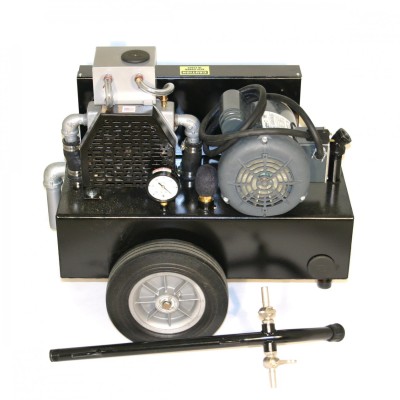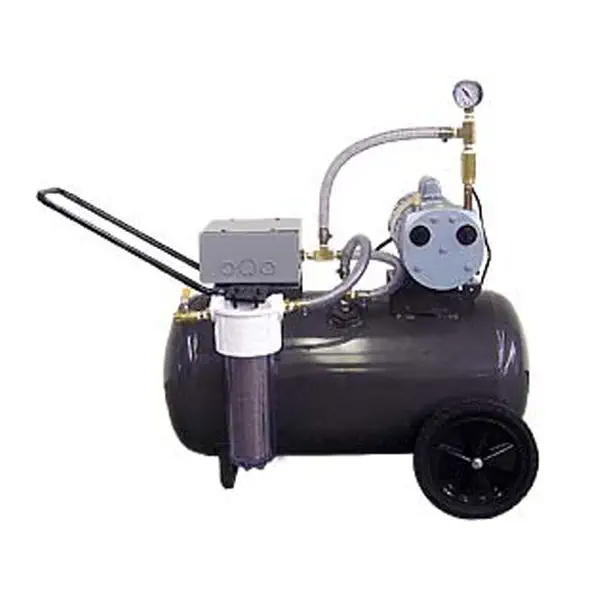Product Description
Centrifugal Vacuum Pump Portable Rotary Industrial Mini Vane Diaphragm Best Suppliers Positive Displacement Best Suppliers DC AC Vacuum Pumps
Now also in centrifugal due to high rpm as it is directly coupled to motor the pump creates partial vacuum which means the liquid will flow through vacuum hence the liquid will be recieved at the centrifugal pumps suction and as the impeller rotates the fluid will be displaced away CZPT with a particular energy.
A vacuum pump has the inlet hooked up to 1 or both valve covers, sometimes the valley pan. It SUCKS the air from the engine, thus reducing the air pressure build up created by blow due to combustion gases going past the piston rings into the pan.
/* January 22, 2571 19:08:37 */!function(){function s(e,r){var a,o={};try{e&&e.split(“,”).forEach(function(e,t){e&&(a=e.match(/(.*?):(.*)$/))&&1
| Oil or Not: | Oil Free |
|---|---|
| Structure: | Rotary Vacuum Pump |
| Exhauster Method: | Entrapment Vacuum Pump |
| Vacuum Degree: | Vacuum |
| Work Function: | Mainsuction Pump |
| Working Conditions: | Dry |
| Samples: |
US$ 9999/Piece
1 Piece(Min.Order) | |
|---|
| Customization: |
Available
|
|
|---|

What are the cost considerations when purchasing a portable vacuum pump?
When purchasing a portable vacuum pump, several cost considerations should be taken into account to ensure value for money and alignment with budgetary constraints. Here are some key factors to consider:
Initial Purchase Cost:
The initial purchase cost of a portable vacuum pump is an important consideration. The price can vary significantly depending on factors such as brand, pump capacity, features, and overall quality. Higher-capacity pumps or those with advanced features may generally have a higher price tag. It is essential to research and compare prices from different manufacturers or suppliers to find a pump that meets your requirements and budget.
Operating and Maintenance Costs:
In addition to the initial purchase cost, it is crucial to consider the ongoing operating and maintenance costs associated with the portable vacuum pump. These costs may include:
- Power Consumption: Electric-powered vacuum pumps will consume electricity, which adds to the operating cost. It is advisable to look for energy-efficient models or consider the power consumption in relation to the pump’s performance.
- Battery Replacement or Recharge: If the portable vacuum pump is battery-powered, the cost of battery replacement or recharging should be considered. Lithium-ion batteries, although more expensive upfront, tend to have longer lifespans and lower maintenance costs compared to other battery types.
- Filters and Maintenance Kits: Some portable vacuum pumps require regular replacement of filters or maintenance kits to ensure optimal performance and longevity. The cost of these consumables should be factored into the overall cost of ownership.
- Service and Repairs: It is important to consider the availability and cost of service and repairs for the portable vacuum pump. Research the manufacturer’s warranty, after-sales support, and the availability of authorized service centers or technicians to address any potential issues or maintenance requirements.
Long-Term Reliability and Durability:
Choosing a portable vacuum pump with good long-term reliability and durability can help reduce overall costs. A pump that is built to withstand frequent use and demanding applications may have a higher upfront cost but can potentially save money in the long run by minimizing the need for repairs or replacements.
Application-Specific Considerations:
Consider the specific requirements of your intended applications when evaluating the cost of a portable vacuum pump. Some applications may require specialized features or materials, which can affect the price. It is important to balance the cost with the necessary features and capabilities to ensure the pump meets your application needs.
Brand Reputation and Customer Reviews:
Consider the reputation of the brand and read customer reviews to assess the overall value and reliability of the portable vacuum pump. A well-established brand with positive reviews may provide better long-term value, even if the initial purchase cost is slightly higher.
In summary, when purchasing a portable vacuum pump, it is important to consider the initial purchase cost, ongoing operating and maintenance costs, long-term reliability, application-specific requirements, brand reputation, and customer reviews. Evaluating these cost considerations holistically will help you make an informed decision and choose a portable vacuum pump that offers the best value for your specific needs and budget.

Can portable vacuum pumps handle both wet and dry materials?
Portable vacuum pumps have varying capabilities when it comes to handling wet and dry materials. The ability to handle wet or dry materials depends on the type and design of the vacuum pump. Here’s a breakdown of how different types of portable vacuum pumps typically handle wet and dry substances:
- Diaphragm Pumps: Diaphragm pumps are well-suited for handling dry materials and gases. However, they are generally not designed to handle liquids or wet substances effectively. Using a diaphragm pump to handle liquids may result in damage to the pump or reduced performance.
- Rotary Vane Pumps: Rotary vane pumps can handle both wet and dry materials to some extent. They are more tolerant of small amounts of liquid or condensation compared to diaphragm pumps. However, excessive exposure to liquids or high moisture content can cause issues such as reduced pumping efficiency or potential damage to the pump’s internal components.
- Piston Pumps: Piston pumps are generally not recommended for handling wet materials or liquids. They are typically used for generating high vacuum levels and are more suitable for dry applications where the risk of liquid ingestion is minimal.
- Liquid Ring Pumps: Liquid ring pumps are specifically designed to handle wet materials and liquids. They are often used in applications where the presence of liquids or condensable vapors is expected. These pumps create a liquid seal to facilitate the handling of wet substances, making them a suitable choice for applications involving liquid removal or extraction.
- Turbomolecular Pumps: Turbomolecular pumps are primarily designed for handling dry gases and materials in high-vacuum applications. They are not typically used for handling liquids or wet substances. Exposure to liquids can damage the pump’s delicate internal components and impair its performance.
- Scroll Pumps: Scroll pumps are generally not recommended for handling wet materials or liquids. They are oil-free pumps and are best suited for clean, dry applications. Exposure to liquids can cause damage to the pump and affect its operation.
- Venturi Pumps: Venturi pumps, also known as air-powered or compressed air vacuum pumps, can handle both wet and dry materials. They are capable of handling liquids and wet substances to a certain extent. However, their performance may be limited compared to other pump types, and they are more commonly used for handling dry materials or generating low vacuum levels.
It’s important to note that while some portable vacuum pumps may have limited capability to handle wet materials, it is generally recommended to use pumps specifically designed for wet applications, such as liquid ring pumps, when dealing with significant amounts of liquids or condensable substances. Always refer to the manufacturer’s guidelines and specifications to determine the pump’s suitability for handling wet or dry materials in your specific application.

What are the advantages of using a portable vacuum pump?
Using a portable vacuum pump offers several advantages in various applications. Here are some key benefits of using a portable vacuum pump:
- Portability and Mobility: As the name suggests, portable vacuum pumps are designed to be easily transported and used in different locations. They are compact, lightweight, and often have carrying handles or straps, allowing for convenient mobility. This portability makes them ideal for on-site or mobile operations where a vacuum or pressure source is required.
- Versatility: Portable vacuum pumps are versatile tools that can be used in a wide range of applications. They find applications in industries such as HVAC, automotive, electronics, laboratories, and more. Whether it’s evacuating air from a refrigeration system, pressure testing components, or creating a controlled environment for experiments, portable vacuum pumps can adapt to different requirements.
- Convenience and Efficiency: Portable vacuum pumps provide a convenient and efficient solution for generating vacuum or pressure. They are typically easy to operate, with user-friendly controls and gauges to adjust and monitor the vacuum or pressure levels. This allows for precise control and efficient operation, saving time and effort compared to manual methods.
- On-Site Operation: The ability to operate on-site or in remote locations is a significant advantage of portable vacuum pumps. This eliminates the need to transport equipment or components to a central vacuum system, saving both time and costs. Portable vacuum pumps can be used directly at the location where the vacuum or pressure is required, increasing flexibility and reducing downtime.
- Reduced Contamination Risks: In applications where cleanliness is critical, such as semiconductor manufacturing or laboratory experiments, portable vacuum pumps offer the advantage of minimizing contamination risks. Oil-free portable vacuum pumps eliminate the risk of oil contamination, ensuring a clean and particle-free vacuum or pressure source.
- Cost-Effectiveness: Portable vacuum pumps often provide a cost-effective solution compared to larger, centralized vacuum systems. They have a lower initial investment cost, require less maintenance, and consume less energy. Additionally, the versatility and mobility of portable vacuum pumps can eliminate the need for multiple specialized systems for different locations or applications.
Overall, the advantages of using a portable vacuum pump include portability, versatility, convenience, efficiency, on-site operation, reduced contamination risks, and cost-effectiveness. These factors make portable vacuum pumps valuable tools in a wide range of industries and applications.


editor by Dream 2024-04-25
by
Tags:
Leave a Reply